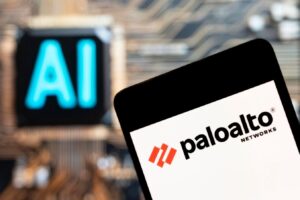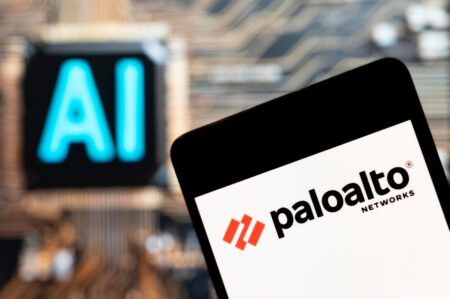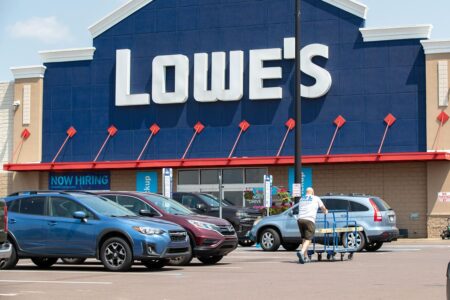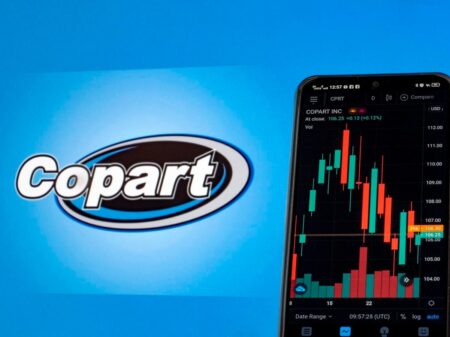Omada Health just filed its S-1 to go public. Now, the diabetes care startup is bolstering its business with new tech for AI-powered nutrition.
The startup is releasing an AI agent to provide nutrition education and guide patients through goal-setting sessions about their food habits, Business Insider has learned exclusively.
The agent, called OmadaSpark, is part of a new suite of “nutritional intelligence” tools that Omada hopes will help its patients make more thoughtful and informed choices about their nutrition and drive behavior change.
Omada is tapping into a booming nutrition care market. “Food as medicine” pushes are picking up steam, especially as US Department of Health and Human Services secretary Robert F. Kennedy Jr. touts his agenda to “Make America Healthy Again”, while more and more patients take GLP-1 drugs such as Ozempic for weight loss.
That’s leading investors to back nutrition startups like Nourish and Fay Nutrition with big funding rounds — and bringing fresh business to late-stage virtual care businesses seizing on the moment like Omada.
The release comes less than two weeks after Omada filed to go public. The startup is one of two digital health companies to have publicly announced IPO plans this year, alongside physical therapy startup Hinge Health, which launched its road show last week.
Omada Health has been caring for patients with chronic conditions, with a focus on diabetes, since 2011. It’s making most of its new AI nutrition tools available to all of its patients across conditions from diabetes to hypertension to obesity. That includes a “food hub” in Omada’s app where patients can ask the AI agent nutrition-related questions and track their meals, with new capabilities to track patients’ water intake and log meals based on food barcodes or photos of the food uploaded to the app.
OmadaSpark is Omada’s first patient-facing AI tech. Dr. Justin Wu, Omada Health’s vice president of clinical innovation and quality, said the startup now feels ready to allow patients to interact with AI directly after significant improvements in the underlying models. He said Omada has fine-tuned its nutrition AI with the startup’s own clinical input, as well as guidelines from the United States Department of Agriculture and other organizations.
Anti-diet tech in the age of Ozempic
Omada Health CEO Sean Duffy told BI in October that metabolic health is the company’s most popular entry point for new customers, which Wu said remains true today.
While Omada doesn’t prescribe GLP-1s like Ozempic or Wegovy, many of its members take the drugs, and employers and insurers often contract with Omada seeking wraparound care for those patients, Duffy said in October.
Despite the recent Ozempic-fueled weight loss craze, Omada says its new nutrition tools are distinctly anti-diet.
Omada’s meal-tracking feature aims to provide feedback encouraging nutrient-dense foods rather than focusing on caloric intake. Its app further tailors nutrition recommendations based on a range of factors, including users’ demographics, chronic conditions, dietary preferences, and whether they’re taking a GLP-1.
“At Omada, we’ve always had a nutrition philosophy that’s moved away from a restrictive mindset to one of abundance,” Wu said. “We don’t want to make people feel bad about their choices — we really want to give them freedom in how they approach their nutrition. Now with AI, we’re able to uplevel those tools.”
Omada’s approach arrives at a complicated moment for the weight loss market. Longtime player WW International, formerly WeightWatchers, filed for bankruptcy earlier this month after struggling with its strategic pivot away from calorie counting and toward wellness. Weight-loss startup Noom, on the other hand, has faced criticism over the years for marketing itself as an anti-diet app while promoting dieting mainstays like significant calorie deficits.
Omada is treading especially carefully knowing its patients may have histories of disordered eating. Wu said Omada’s new AI agent’s goal-setting tools will only be available at first to patients who have indicated emotional eating as a concern, to ensure the tool can support those patients’ needs. The information from those sessions will also be fed to the members’ care teams, Wu said, to help coaches carry the conversation forward at a deeper level.
Omada’s IPO prospects
While the public markets dipped in April due to President Donald Trump’s tariff proposals, key policy rollbacks have cooled market volatility and prompted plenty of companies, including Omada Health, to barrel ahead with their IPO ambitions.
While Omada’s financial profile isn’t quite as strong as Hinge Health’s, the chronic care startup has been making progress toward profitability and high margins.
Omada banked nearly $170 million in revenue last year, up 38% from its 2023 revenue, with a 60% gross margin.
Its losses have been narrowing, but the company is not profitable yet, recording a $47 million net loss in 2024. Bankers and investors have generally pushed digital health startups to reach profitability before trying to go public, after the sector’s last IPO cycle produced several company collapses.
Omada last raised $192 million in a Series E funding round led by Fidelity Management in 2022 that boosted its valuation to over $1 billion.
The startup plans to list on the Nasdaq under the ticker “OMDA”.
Read the full article here
















